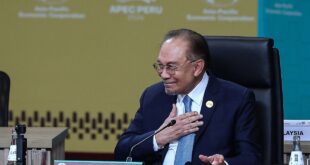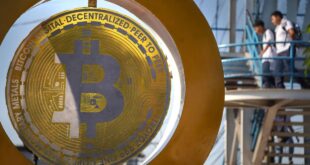KUALA LUMPUR: The Employees Provident Fund (EPF) is positioned for favourable returns this year as improving global market sentiment gains momentum and with the resolution of political uncertainties locally.
For the first half-year ended June 30, 2023 (1H23), the fund recorded total investment income of RM33.19bil, an increase of RM9.44bil from RM23.75bil recorded in the same period in 2022.
Tradeview Capital chief investment officer Nixon Wong said the catalyst in the near term for the fund would be in the form of clearer policies that spur domestic consumption and the return of inbound tourists to Malaysia.
However, near-term earnings weakness due to high operating costs, slower pre-election business investments as well as China’s slower recovery present risks.
“We are quite positive on the local market as the election result was broadly in line with expectations.
“With the overhang of political uncertainties now behind us, investors are focusing on policy implementations that will drive and improve the nation’s economy.
“Nevertheless, the FBM KLCI’s valuation has yet to revert to the historical average, implying some room for further upside,” he told StarBiz.
Wong said macro headwinds may also come from surfacing credit risks from the property sector in China, which could have negative implications for the local economy.
“It depends on the EPF’s investment strategy. If the mandate to increase domestic exposure, as urged by the Prime Minister recently, is followed through, we may see the EPF sailing through with domestic-centric positive catalysts.”
Wong said this would include foreign fund inflows, the strengthening of the ringgit from a potentially weaker dollar and better economic improvements heading to a new financial year, while neutralising any negative risks from the global markets such as a potential US recession risk in early 2024 and geopolitical risks.
Meanwhile, Rakuten Trade head of equity sales Vincent Lau said the EPF’s performance this year is expected to be satisfactory, if not on par with expectations.
“The EPF is seeing an increase in contribution rates, surpassing even the pre-Covid-19 levels.
“Both voluntary and monthly contributions have seen improvement and the median increase is quite encouraging.
“This is an indication of a strong labour market and that the economy is recovering,” he said.
With the election results within expectations, he said foreign funds are also starting to return.
“Prior to the elections, it was net inflows although year-to-date, it is still net outflow. These are signs that things are getting better.
“Post-state elections, the market index has been going up and I think it will continue to improve,” he said.
As at 1H23, the EPF continues to grow its membership to 15.9 million. Of that figure, it reached an all-time high of 8.47 million active members, which represents 50.2% of Malaysia’s 16.86 million labour force.
The increase of active members was 467,087, from eight million in 1H22 to 8.47 million in 1H23.
Fixed-income instruments, comprising Malaysian Government Securities and equivalents, as well as loans and bonds make up 27% or RM4.83bil of EPF’s total investment income for the second quarter of 2023 (2Q23).
Real estate and infrastructure posted an income of RM2.72bil, while income from money market instruments generated RM880mil, in line with the return expectations set for these asset classes.
For 2Q23, total investment income was RM18.03bil, up RM9.05bil from RM8.98bil recorded in the same quarter last year.
Equity investments continued to be the main contributor of income in 2Q23 at RM9.60bil. In comparison, the asset class generated RM4.07bil of income during the previous corresponding quarter in 2022.
“The EPF’s largest portfolio is still its fixed income. The kicker will be equity and foreign investment.
“I think foreign investment has done very well in the United States and the global markets. Only that the local market has a lacklustre performance,” Lau said.
 BeritaKini.biz Berita Viral Terkini di Malaysia
BeritaKini.biz Berita Viral Terkini di Malaysia





